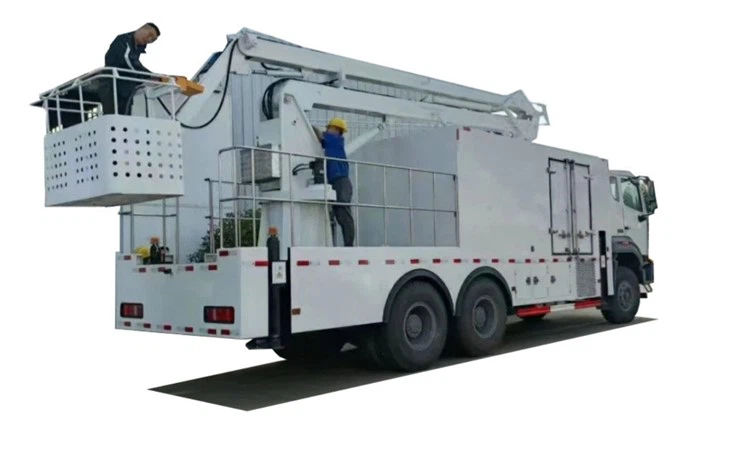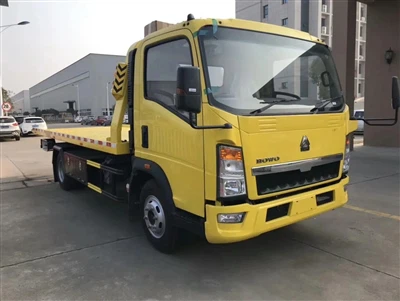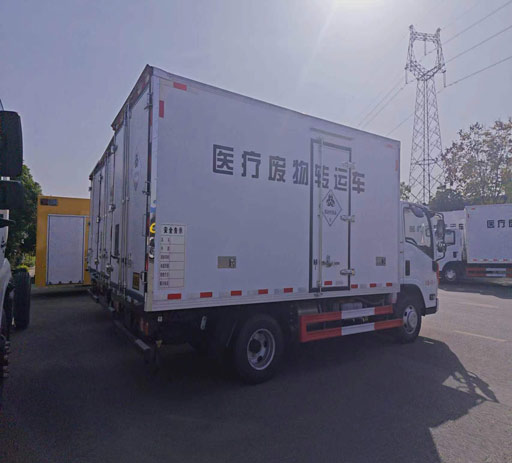Container Delivery Truck: Revolutionizing Cargo Transport

Introduction
Container delivery trucks play a vital role in the logistics and transportation industry, facilitating the movement of goods across various distances efficiently. These specialized trucks are designed to transport shipping containers that are standardized in size, primarily 20 and 40 feet long. With the rise of global trade, the demand for reliable container delivery systems has surged. This article explores the different aspects of container delivery trucks, their functionality, features, and the best practices for utilizing them effectively.
Understanding Container Delivery Trucks
Container delivery trucks are heavy-duty vehicles equipped to haul freight containers from one location to another. They are an integral part of the supply chain, ensuring that goods reach their destinations in a timely manner.
Types of Container Delivery Trucks
Container delivery trucks come in various types, each tailored to specific transportation needs. Here are the most common types:
1. Flatbed Trucks
Flatbed trucks are versatile and can carry several containers stacked on them. They offer easy loading and unloading and are ideal for transporting containers to places where crane access is limited.
2. Chassis Trucks
Chassis trucks have a specialized frame that allows containers to be mounted directly onto the truck. This is one of the most common types used for container delivery, as it allows for efficient transportation of standard-sized containers.
3. Roll-On/Roll-Off (RoRo) Trucks
RoRo trucks enable vehicles or equipment to be driven directly onto the truck, making them suitable for transporting vehicles along with other cargo in containers.
How Container Delivery Trucks Work
Container delivery trucks operate within a structured system to ensure goods are transported efficiently:
Step-by-Step Process

- Booking: Customers book a container through a freight company, specifying pick-up and drop-off locations.
- Container Loading: The cargo is packed into a shipping container, which is then securely loaded onto the truck.
- Transportation: The truck travels to the specified destination, often navigating a network of highways and local roads.
- Unloading: Upon arrival, the container is unloaded, either using a crane or similar equipment.
Key Features of Container Delivery Trucks
Container delivery trucks are specially designed to handle the challenges of freight transport:
- Durability: Built to withstand the rigors of heavy loads.
- Flexibility: Can be adapted for different container sizes.
- Safety: Equipped with secure fastening systems to keep containers firmly in place during transit.
Advantages of Using Container Delivery Trucks
Utilizing container delivery trucks is beneficial for businesses for several reasons:
Efficiency in Logistics
Container delivery trucks streamline the transportation process and enable quick turnaround times for shipments, reducing overall logistics costs.
Cost-effectiveness
By transporting standard-sized containers, businesses can minimize shipping expenses while maximizing the volume of goods transported in one trip.
Environmental Benefits
Modern container delivery trucks often comply with stringent emission standards, contributing to reduced carbon footprints. This is especially important given the global focus on sustainability.
Practical Tips for Choosing a Container Delivery Truck
When selecting a container delivery truck for your shipping needs, consider the following factors:
1. Assess Your Cargo Requirements
Evaluate the type and volume of cargo you need to transport. This information will help you determine the appropriate size and type of truck.
2. Research Truck Specifications
Each container delivery truck has different weight capacities, dimensions, and features. Look for trucks that match your requirements.
3. Consider Delivery Times
Choose a transportation service that offers reliable delivery schedules, as timely delivery can significantly affect your business operations.
4. Compare Pricing
Gather quotes from multiple providers to find a competitive price without compromising on quality.
5. Check for Licenses and Insurance
Ensure that the trucking company is properly licensed and insured, which can protect your cargo during transit.
Innovations in Container Delivery Trucks
The transportation industry has seen significant advancements, particularly in the realm of container delivery trucks:
Technology Integration
The use of GPS tracking systems allows for real-time monitoring of truck locations, ensuring transparency and reliability in deliveries.
Automation
Automation in logistics, like the use of robotic systems for loading and unloading, is on the rise, improving efficiency and reducing the risk of human error.
Electric Trucks
With the push towards sustainability, electric container delivery trucks are being introduced to reduce emissions while maintaining operational efficiency.
Challenges in Container Delivery
While container delivery trucks offer numerous advantages, they also face certain challenges:
Traffic Congestion
Urban areas often experience heavy traffic, which can lead to delays in deliveries. Planning routes strategically can mitigate these issues.
Weather Conditions
Inclement weather can affect travel times and road safety. Companies need contingency plans for adverse weather situations.
Regulatory Hurdles
Different regions have various regulations concerning weight limits and operating hours for trucks, which can complicate logistics planning.
Container Delivery Trucks vs. Other Transportation Methods
A comparison of container delivery trucks with alternative transportation methods can help in determining the best option for cargo transport:
| Transportation Method | Advantages | Disadvantages |
|---|---|---|
| Container Delivery Truck | Flexible, direct delivery, cost-effective for short to medium distances | Traffic congestion can cause delays |
| Rail Transport | Efficient for large volumes over long distances | Less flexible; dependent on rail infrastructure |
| Air Transport | Fast delivery over long distances | High costs; limited cargo capacity |
| Shipping | Cost-effective for bulk goods over international distances | Longer delivery times; dependent on ports |
FAQ Section

1. What is a container delivery truck?

A container delivery truck is a specialized vehicle designed to transport shipping containers, typically used in the logistics and transportation industry.
2. What types of containers can be transported?
Most container delivery trucks can transport 20-foot and 40-foot standard containers, as well as specialized containers for certain cargo types.
3. How are containers secured during transport?
Containers are secured with various locking systems and twist locks to prevent movement during transit.
4. Are there weight restrictions for container delivery trucks?
Yes, each truck has a maximum weight limit, which is regulated by law. It is essential to adhere to these regulations to ensure safety.
5. How can I reduce delays in container delivery?
To reduce delays, plan routes carefully, monitor traffic conditions, and communicate effectively with the logistics provider.
6. What are the environmental impacts of container delivery trucks?
Modern container delivery trucks aim to be more environmentally friendly by meeting regulatory standards for emissions, and many companies are gradually shifting towards electric or hybrid vehicles.
